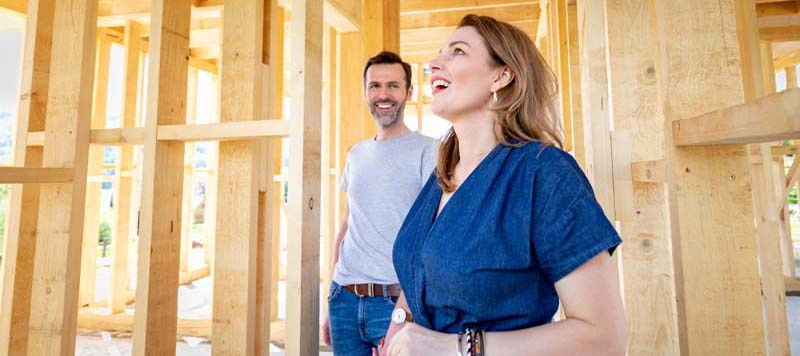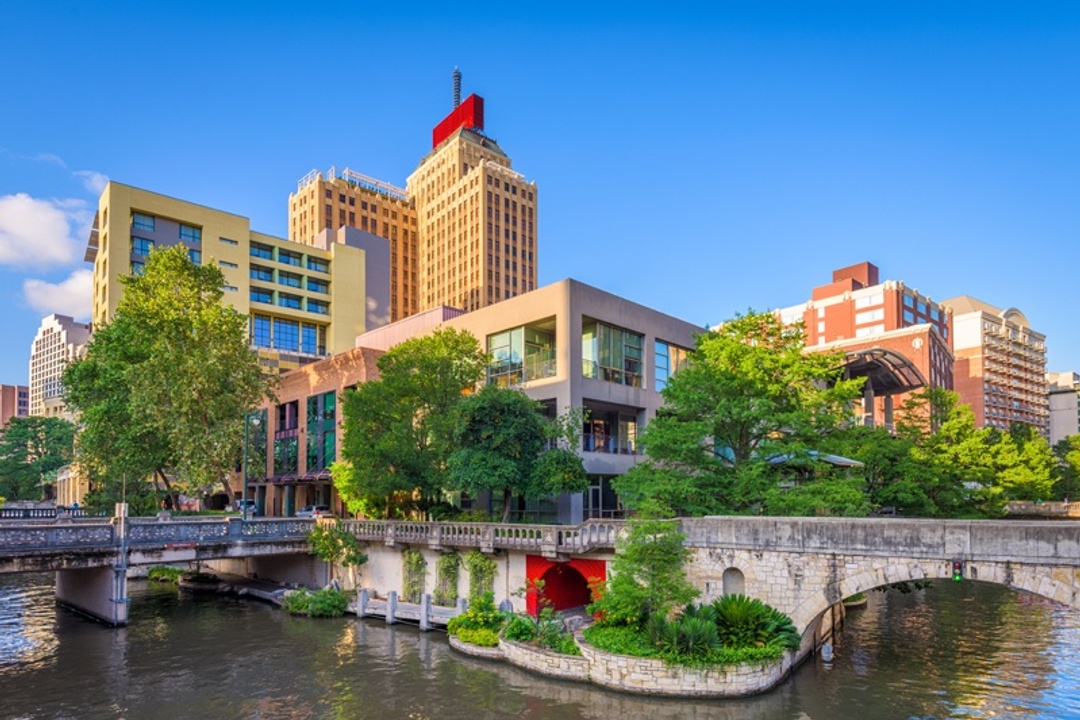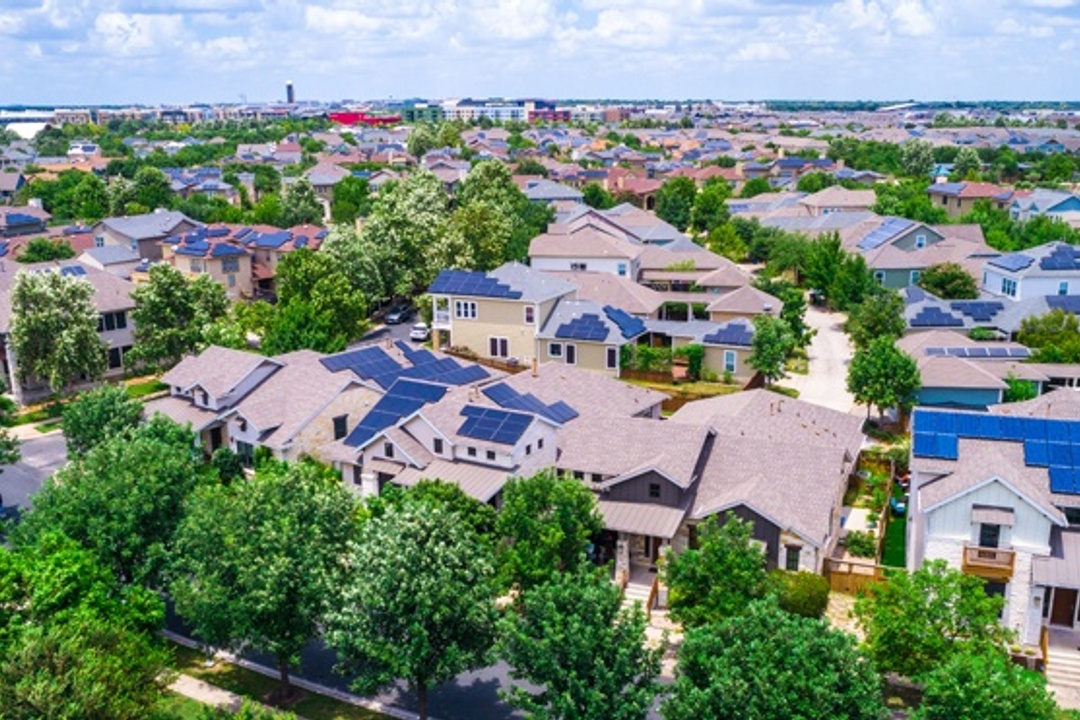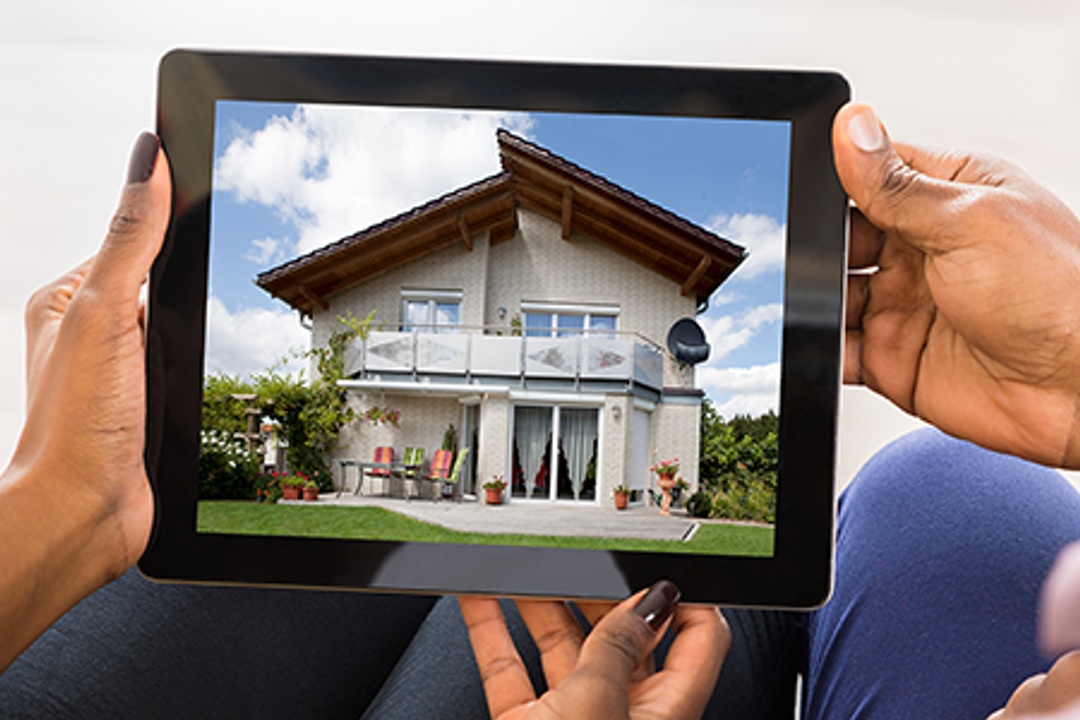
With housing inventory so low across the country, many prospective buyers are investigating alternatives, such as building their own home from the ground up rather than purchasing an existing one.
But this raises the question of whether it is cheaper to build or buy a home. The median price to buy a property per square foot in the United States is $123, according to Realtor.com estimates. However, this can vary significantly depending on where you live and other circumstances. On the other hand, the typical cost of constructing a new home is between $100 and $200 per square foot.
So, which one is the best? That is determined by a variety of factors, including your requirements, location, schedule, local housing inventory, and the availability and cost of supplies and labor. Let's delve a little deeper to help you weigh the costs and benefits of building versus buying a home.

Is It Cheaper To Buy Or Build A House?
From a financial standpoint, buying a home may be substantially less expensive than building one from the ground up. When you purchase an existing home, you pay for both the land and the house at the same time. When building, you will need to purchase the land for your home and then pay for the supplies and labor to construct it.
According to Dave Ramsey's experts, buying land and building a house cost, on average, $485,000 in 2021. On the other hand, the average price of a pre-owned home was $373,100 at the end of 2021. This means that builders spent an additional $111,900 on average to purchase land and construct homes on it.
Although this information is current, it may be out of date. Both the housing market and the cost of construction materials skyrocketed in 2022. The typical home sale price jumped by 17%, while the cost of construction materials increased by 12.2%. While some home buyers may be surprised by housing prices, the cost of construction remains high. Building a home is no more cheap now than it was a couple of years ago.
Cost Of Building A House
Labor, supplies, permits, architectural plans, and inspections are all included in the cost of constructing a home. One of the many ways to save money when building a house is by doing the majority of the work yourself or using less expensive materials. Overall, the cost of constructing a home is primarily determined by the location, building design, and how much you choose to spend on each project component.

Remember the above-listed price ranges are all estimates and may be influenced by the building location (states), material quality (high-end vs. low-end), and builder. Before choosing to build a house, you should consider comparing quotes from several local builders.
Cost Of Buying A House
When looking to buy a home, there are several costs you may have to deal with. In this section, we will look out some of the costs involved in buying a $400,000 home.

Build Or Buy A House: Factors Affecting The Cost
All in all, it’s smart to understand the various underlying factors that affect the cost of building or buying a house. Here we lay out everything a homebuyer needs to know about buying or building a house from scratch.
1. Square footage
According to the most recent data, the median cost of purchasing an existing single-family home is $358,800. That works out to around $159 per square foot for the average 2,261-square-foot home built after year 2,000. However, depending on where you live, the exact price can vary greatly.
Building a house will cost you an average of $485,000, plus around $35,872 in material expenses owing to post-pandemic effects. However, you may get a lot more for your money. For one thing, while new construction is typically larger, with a median size of 2,594 square feet, the cost to build per square foot is actually lower than the cost per square foot of existing homes.
2. Maintenance
Not all costs can be computed at the closing table. When you purchase an existing home, you are invariably purchasing a variety of appliances and home amenities that have a limited lifespan. Homeowners may need to:
* Replace the old washer and dryer they inherited (cost: $350 to $2,000).
* Restore ancient pipes (the average cost of a ruptured pipe is $500).
* Pay for a new roof installation ($4,000 to $10,000 or more, depending on size).
These are only a few instances. While builders of a new home may have to deal with some of these concerns, they have the advantage of starting with a brand new home, with brand new appliances and features– thus serious maintenance issues may not arise until decades later.

3. Landscape
If you acquire an existing property, mature landscaping with enormous trees and established vegetation can be a major benefit. That may not seem like a huge deal until you consider that the US Forest Service believes that strategically placed mature trees may add tens of thousands of dollars to the value of a house and save up to 56% on annual air-conditioning costs.
If you are building a new home, builders frequently install little or no landscaping. It could cost thousands of dollars and years to achieve the yard you want. For example, a 6- to 7-foot-tall red maple will cost around $99.95 (if planted yourself) and will grow 2 to 3 feet every year. The cost of fully new landscaping ranges from $3,000 to $15,950 or more, according to HomeGuide.
4. Land
When you purchase an existing home, the lot is included. When building a house, though, you must first purchase the lot. Lot prices in rural locations can range from $5,000 to over $100,000 in urban areas with limited space.
If you're shopping for a lot in a popular neighborhood, your lot may already have a "teardown" structure on it, and you'll need to include the expense of destroying any existing or failing construction on the lot. A total demolition can cost up to $25,000, according to HomeAdvisor, depending on the complexity.
In other words, buying a lot in a metropolitan region might significantly increase the cost of constructing your own home. Depending on where you want to live, buying a home might be a more cost-effective approach compared to building a house.

Advantages Of Building A House
Building a home can be a rewarding process. You get to personalize it and choose every feature throughout. If you're thinking of building your next house but aren't sure if it is the best decision, here are some benefits to consider.
1. Personalization
From the layout, cabinetry, and flooring to the sinks, lighting, and doorknobs, customizing a home from the bottom up allows you to tailor it to your lifestyle and desires.
2. There Is Little Or No Competition
The real estate industry in 2023 is booming. Existing homes were only on the market for 17 days in March. With homes selling at such a fast pace, you'll have to compete to win the best existing property at the best price. However, if you own the land on which you want to build your home, you will certainly have no competition!
3. Little Upkeep Is Required
Because new homes must adhere to current building rules and feature cutting-edge technology, you won't have to deal with major repairs or upkeep for the first few years—no leaky roofs or malfunctioning HVAC systems for you! Plus, because no one came before you, you won't have to worry about uncovering the previous owner's shoddy do-it-yourself repairs.
4. Improved Energy Efficiency
Newer homes are designed to be energy efficient. If you are concerned about the environmental impact of your home, you may make choices throughout the construction process to promote green architecture and sustainability in your home and future.
5. Less On-Going Upkeep
A newer property may have fewer upkeep bills ahead of it— at least for the first few years. In most cases, new home builds include a builder's warranty on major systems. New appliances will also come with warranties.

Disadvantages Of Building A House
Building your own home gives you greater flexibility and potential opportunities to save money. However, you may have to wait longer and spend more. The following are some disadvantages of building a new home.
1. Longer Timeline
While an existing home is usually ready to move into, a new construction home can take several months to finish. Harsh weather, shipment delays, or human error can all add time to the process.
There may be a time lag between selling your previous home and moving into your new home. Hiring a reputable home builder might help to speed up the construction process. To hold the builder accountable, you should specify a timeline in your contract and interact with your contractor throughout the job.
2. Price Bargaining Has Limited Flexibility
While building your own home can potentially save you money, there isn’t a whole lot of room for bargaining on the price. You can ask the designer and contractor for cheaper alternatives to your floor plan and building materials, but depending on the cost of materials, there isn't much space for negotiating. Compare many vendors and pick professionals who can give you the best pricing for your new construction.
3. Unexpected Out-Of-Pocket Expenses
How much does it cost to build a house? The more customized your floor plan, the more money you'll have to pay. Before you sign the contract, ask your home builder what the base price covers. Your contractor should also negotiate the best pricing on supplies, appliances, and aesthetics.
4. Construction Sounds And Traffic
Many contractors, landscapers, and employees must be involved and work together to build your house. Their trucks will be blocking residential roads and making noise which may put current residents in the neighborhood at a disadvantage. Before you begin the construction process, consult with your potential neighbors to prepare for any inconvenience.
5. More Landscaping Responsibilities
Because you're buying a new parcel of land, it's possible that no one has cared for it throughout the years. You'll have to put in extra effort to trim the trees and mow the yard. You can incorporate landscaping into your house building plan to save time.

Advantages Of Buying A House
In many ways, buying a house is less stressful than building one. There will be no plot scouting or countertop selection. It’s already taken care of. But does that remove some of the choices and excitement of moving into a new home? Let's look at the advantages and disadvantages of buying a house.
1. Move-in Ready
If you need to relocate fast, buying a house instead of building one is generally your best option. Construction projects take time to finish, whether you're building a house or buying a fixer-upper. Purchasing a home that’s already built and updated will be the fastest option.
2. Less Costly
In general, buying a property will be less expensive overall, but this will depend on the market. In addition, there’s a lot more wiggle room in home buying. And not just in the price. You can negotiate just about anything into your offer, including appliances, improvements, warranties — even the playset sitting in the backyard — to get more for your money.
3. Options For Home Improvement
You can improve your home to match your desired housing taste when you have the time and money. However, if you want a home that allows you to select your preferred design, floor plan, and appliances, you may want to consider buying a new construction home.
4. Closer To Urban Centers
If you want to be close to downtown, it may be tough to find a lot to build on. In urban regions, it’s common to find that all available lots have already been developed into dwellings. Buying a home can put you in the region you want at the correct price.
5. Mature Landscaping
Purchasing a home will almost typically include some mature landscaping, thereby eliminating landscaping expenses which is common with building a house. If you want mature shade trees and rhododendrons for days, you should consider buying rather than building. It will likely take years for fresh landscaping to match the splendor of established plantings.

Disadvantages Of Buying A House
While building and designing your own home can be challenging, you will be able to have whatever you desire. When you buy a house, you are unlikely to get everything on your wish list and may have to make some sacrifices. One of the most significant disadvantages of purchasing a home is not getting exactly what you want. Here are a few more:
1. House Buying Anxiety
It can be time-consuming and difficult to look for the perfect already-built home. The real estate market is currently dominated by sellers, who are often receiving numerous clean offers above asking price within days of advertising their properties.
Buyers, on the other hand, are confronted with exorbitant prices, bidding wars, and several rejected bids. It's not always easier to buy than it is to build. Working with an experienced real estate agent can make the process go more smoothly and quickly.
2. Home Style Compromise
Even when you have a lot of options, finding a home that you like and that expresses your personality can be difficult. With fewer homes for sale than the demand for properties, you may find yourself without many options.
3. Maintenance Concerns
You may encounter maintenance concerns sooner rather than later with outdated appliances, plumbing, and electrical systems. One option? Think about getting a home warranty. You'll know exactly how much to budget for house repairs and who to call if a problem arises with a home warranty.
4. Poor Energy Efficiency
Older homes are more likely to be inefficient in terms of energy use, which can result in greater energy expenses. Most of the time, you won't be able to attain the same energy efficiency as a new, sustainable home, but there are several things you can do to lower the carbon footprint of an older home.
5. Potential Presence of Hazardous Materials
Older homes may contain hidden health hazards from former owners. Lead paint is most likely to be found in homes built before the 1970s. If you have children, you should keep that in mind when looking for a used home.

So, Is Building a House Cheaper Than Buying?
Calculating the difference in aggregate expenses between building a new house and buying an existing one isn't an exact science, and it relies a lot on your location and wish list. When it comes to financial risk, buying an existing home is the cheapest option, but if you have the land and a trustworthy builder, a new home may be built just as affordably.
To get the most out of your money, thoroughly weigh all of the benefits and dangers. If you want something unique, a home in a specific location, or something more elaborate than what is already on the market near you, you may want to consider building. But if you are faced with a time constraint and want a more developed community, then buying a house may be a great choice.
Thinking of purchasing a home in Texas? Why don’t you search for your next home with BHGRE HomeCity. Feel free to reach out to our qualified and experienced real estate agents for proper assistance regarding your home buying and selling needs.










